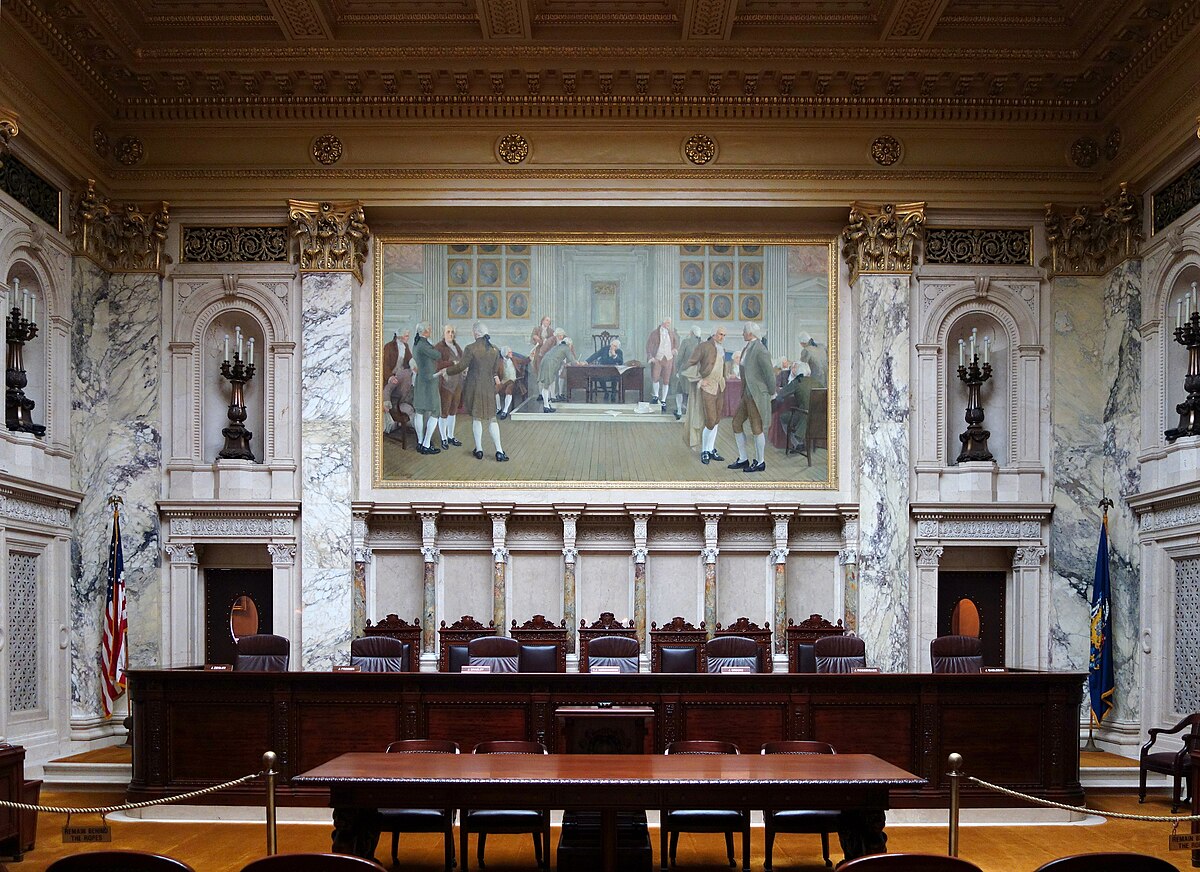Battleground State Supreme Court Shakes 2024 Election, Tosses Mail-In Ballot Decision
In a recent ruling, the Pennsylvania Supreme Court vacated a lower court’s decision deeming the state law requiring mail-in ballots to be correctly dated unconstitutional. This outcome is seen as a significant victory for Republicans, who assert it strengthens election integrity by decreasing the potential for fraud. The lawsuit that challenged the law, initiated by liberal groups, claimed that election officials violated voters’ constitutional rights by not counting ballots that were undated or incorrectly dated during the 2022 midterm elections. However, the Supreme Court ruled that the lower court did not have the authority to hear the case since it failed to name the boards of elections from all 67 counties as defendants. This decision underscores the importance of jurisdiction and party representation in legal disputes surrounding election laws. Notably, the controversy reflects broader political tensions in Pennsylvania, particularly involving the predominantly Democratic cities of Philadelphia and Pittsburgh. The ruling illustrates ongoing debates about election laws and their perceived implications for both election integrity and voter access.
Liberal attempts to “game the system” in a swing state just took a big loss.
In a Friday ruling, the Pennsylvania Supreme Court vacated a lower court decision that found a state law requiring mail-in ballots to be dated correctly was unconstitutional.
And Republicans nationally are hailing the decision.
HUGE election integrity win in Pennsylvania.
Following legal action from the RNC and @PAGOP, the PA Supreme Court REJECTED a Democrat attempt to count undated ballots.
This makes mail voting in the Keystone State less susceptible to fraud.
We will keep fighting and winning!
— Michael Whatley (@ChairmanWhatley) September 13, 2024
“HUGE election integrity win in Pennsylvania,” Republican National Committee Chairman Michael Whatley wrote in a social media post. “We will keep fighting and winning!”
In the ruling, according to the website of the Pittsburgh Tribune-Review, the state high court found that a lawsuit challenging the requirement did not fall under the jurisdiction of the Commonwealth Court that ruled against the law.
The lawsuit that challenged the law named only the boards of elections in Philadelphia and Allegheny counties — homes of the cities of Philadelphia and Pittsburgh — as well as the Pennsylvania Department of State as defendants.
In order for the Commonwealth Court to review it, it would have had to name the elections boards in all 67 counties, the Supreme Court ruled.
At issue is a Pennsylvania state law that clearly requires mail-in ballots to be signed and dated by voters.
In the lawsuit, according to the Tribune-Review, the liberal groups claimed that elections officials in the 2022 midterms violated the constitutional rights of Pennsylvanians by failing to count ballots in envelopes that were either undated or dated incorrectly.
The lower court agreed. But in even hearing the case, it overstepped its bounds, the state Supreme Court ruled, in a 4-3 vote.
“The Commonwealth Court lacked subject matter jurisdiction to review the matter given the failure to name the county boards of elections of all 67 counties,” the ruling states.
The lawsuit’s inclusion of Secretary of the Commonwealth Al Schmidt — who heads the Department of State — did not cover the problem, the court ruled.
The ruling might have looked narrow on its face, but the dispute is about far more than a technicality.
Philadelphia and Pittsburgh are overwhelmingly Democratic strongholds. At least one Republican lawmaker implicitly questioned how honest those elections officials would be defending a state law denounced by Democrats — including the state’s Gov. Josh Shapiro, a one-time contender for the Democrats’ vice presidential slot on the 2024 ballot.
State Sen. Kim Ward, a Republican from a Westmoreland County district 225 miles west of Philadelphia, accused the liberal groups of “gaming the system.”
“Petitioners’ attempt to game the system by naming only counties and state officials sympathetic to their legal position was soundly rejected,” she said.
“While this may not be the end of this issue, this decision ensures that all interested and necessary parties will be heard if and when this issue again comes before the court.”
Matthew Haverstick, a lawyer who represents the Republican Party in the Keystone State, called the liberal effort “collusive.”
“Hopefully outside groups will get the message and stop doing these collusive, set-up lawsuits, and instead name parties who actually have an interest in a case,” he said.
“And perhaps next time the secretary will stand up for the constitutionality of state law.”
Advertise with The Western Journal and reach millions of highly engaged readers, while supporting our work. Advertise Today.
" Conservative News Daily does not always share or support the views and opinions expressed here; they are just those of the writer."




